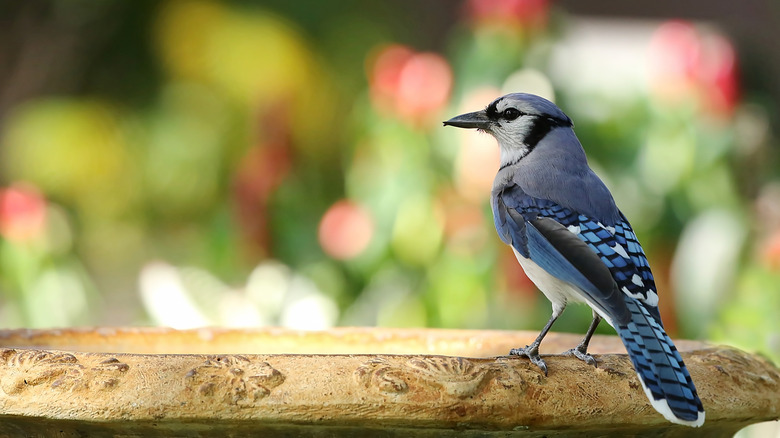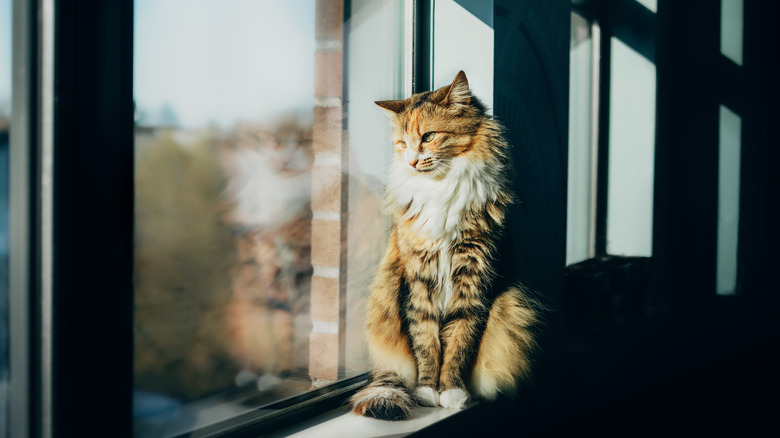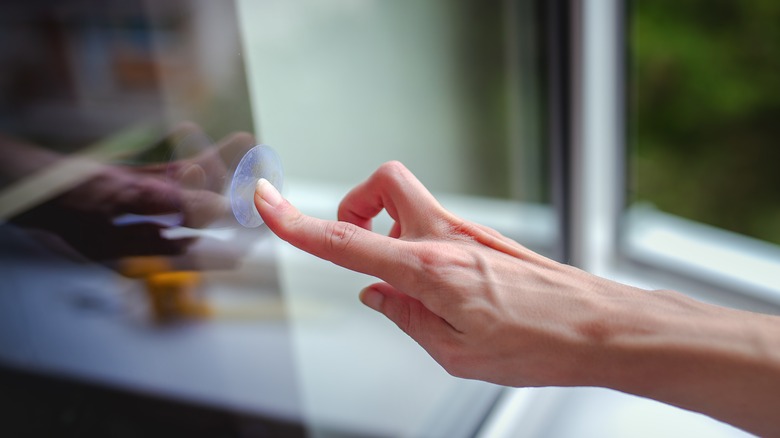The Two Top Causes Of Bird Deaths Are In Your Yard (& Here's How To Address Them)
We may receive a commission on purchases made from links.
Finding dead birds in your yard is tragic and heartbreaking. But if bird deaths are starting to pile up on your property, the two likeliest causes are very much under your control. That's right — the two most significant causes of bird deaths are cats and buildings, and there are things you can do to mitigate their lethal effects on our feathered friends.
According to a study published in Nature Communications, free-roaming cats kill on average 2.4 billion birds every year in the contiguous United States alone. Almost 70% of these bird killings are caused by cats who don't have owners, but even so, the statistic translates into 720 million bird deaths at the hands of domestic cats. The second most significant cause of bird mortality forms part of your home itself. As many as 250 million birds also die each year as they fly into the windows of single-family residential homes thinking that the flightpath in front of them is clear. This fatal illusion stems from windows' reflective properties — to the approaching bird, the pane of glass mirrors the surrounding environment, and they can't discern it as a barrier. Below, you'll find out the best strategies for managing these two causes of bird mortality and making your yard a safer place for birds.
How to stop domestic cats from killing birds in your yard
The most effective way to keep your feline companion from acting on its bird-killing instincts is to keep it indoors all the time. Of course, if your cat is used to spending time outside, it won't be thrilled by the indefinite confinement. It may even fall into depression or become lethargic. It'll be up to you to keep the cat entertained with toys, play with it often, and grow plants the cat can nibble on. Since the cat is probably used to fresh air, you can keep windows open (as long as they're screened). Over time, your cat should get used to indoor life. Avoiding the outdoors may even prove safer, as the cat won't be susceptible to vehicle accidents, disease, or predatory animals like coyotes.
If you don't want to deprive your cat of outdoor time altogether, a few options can still minimize the risk it poses to local birds. Firstly, you can schedule the cat's indoor time to coincide with its preferred hunting times — at dusk and dawn. Since cats hunt more actively in the spring, you could also limit its use of the home's yard even more during this season. A second strategy to try (one that doesn't preclude the first) is to make the cat wear a special collar like this one sold at birdbesafe.com. This collar alerts birds to the cat's presence, and reportedly reduces cat-related bird mortality by as much as 87%.
How to prevent window-related bird deaths
To keep birds from flying into your home's windows, you need to make the glass more visible. You can do this by sticking bird-safe decals, like these ones from Amazon, to your home's exterior glazing. Alternatively, vertical strips of white tape applied every 4 inches on the window will work the same way. If you feel like getting creative, you can use soap to draw unique designs on the glass — these should be visible to your yard's feathered visitors.
But not all strategies involve adding a pattern to the glass itself. For example, installing a retractable awning above the window will prevent the glass from reflecting the sky (not to mention give your interior space some shade on sunny days). Likewise, you can install a window screen several inches from the exterior face of the glass — the birds are less likely to be fooled by the reflective surface, and even if they are, the net will cushion their impact. Another option is to either divert birds from a direct path into the window, or to give them enough time to see the obstruction in their way. For example, you can hang bird feeders close to the window — departing birds won't gain enough momentum to hurt themselves if they crash into them. Alternatively, move these bird attractions away from the house — the birds will have a chance to discern the windows as they eat or bathe before setting for the skies.


